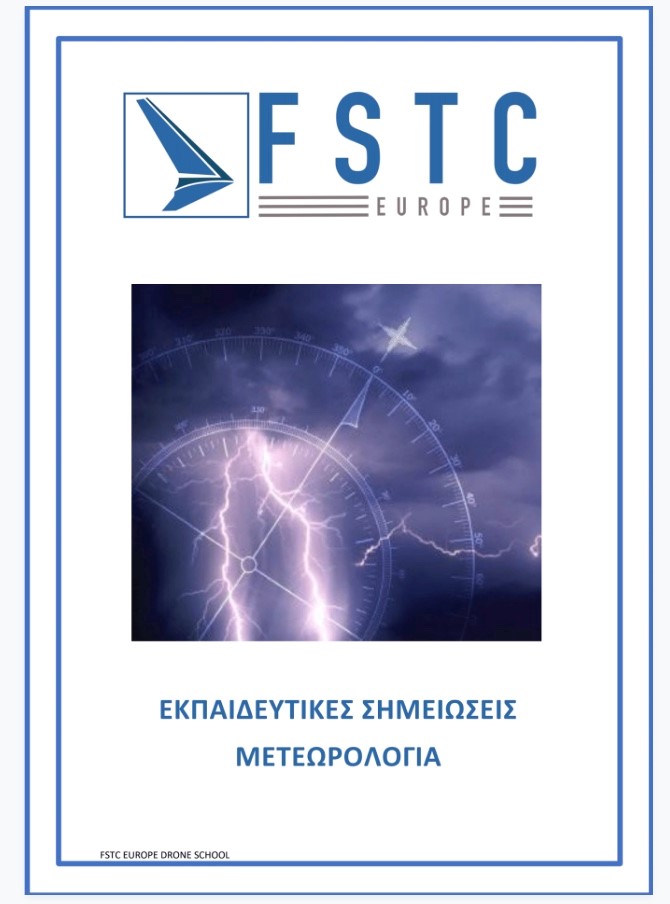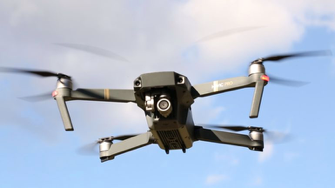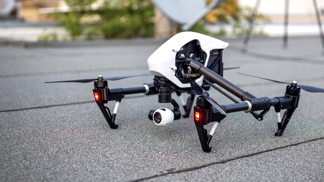UAS | Drone Pilots
The UAV industry has experienced a boom in the last couple of years as drones have become essential business tools in many industries. If you are considering a career as a UAV licensed pilot, FSTC EUROPE is the training provider you are looking for.
UAS are specified as:
Total of 50 Hours / 7 Training Days.


For the issuance of the Pilot License from HCAA, written exams and a skill test (Flight assessment) is furthermore required.
As a result, the demand for drone pilots who can take stunning aerial videos and images of their properties has gone up.
If you know how to work with a camera drone to take property photos and HD clips, this career is for you.
Now, many companies opt to use drones which are safer and better at it. Drones like Yuneec H520 and DJI Matrice 600 are great at up-close inspections that can detect even the smallest problems. They can even be fitted with IR cameras to look for problems like cracks and leaks.
For instance, during the recent Attica fires, several insurance companies contracted UAV operators to survey the damage. This helped the companies ascertain claims and predict the number of future claims.
You can work with a movie director to capture aerial clips for their film, you can shoot images and videos for news companies or you can shoot your own imagery and sell it.
NEXT COURSE BEGINS ON: UPON REQUEST
UAS Pilot License - Course Entry Requirements
Minimum requirements to enter the Course are the following:- To be at least 18 years old
- Valid ID or Passport
- Valid Health Certificate, of an equivalent level to an air traffic controller (Class 3 Medical Certificate) in the "Specific" and "Certified" Category.
- Very good knowledge of Greek language equivalent to high school graduate level.(HCAA Exams will be taken in Greek)
- Good knowledge of English language at level ICAO 4 or higher, for flights of UAS "specific" and "certified" categories
Categories of Unmanned Aircraft Systems (UAS)
For the classification of UAS, the following criteria are taken into consideration:UAS are specified as:
- "Open" category (UAS Open Category)
- "Specific" category (UAS Specific Category)
- "Certified" category (UAS Certified Category)
Training Syllabus
Theoretical knowledge
Theoretical knowledge training that meets the requirements of HCAA and covers topics of the General framework for flights of Unmanned Aircraft Systems - UAS, provided by well experienced Instructors.Total of 50 Hours / 7 Training Days.
| COURSE DESCRIPTION | DURATION | |
| 1 | Air Law-Regulations related to UAS | 5 hrs |
| 2 | Air Traffic Management | 5 hrs |
| 3 | Meteorology | 5 hrs |
| 4 | Navigation | 8 hrs |
| 5 | Human Factors | 8 hrs |
| 6 | Principles of Flight | 6 hrs |
| 7 | Communications | 6 hrs |
| 8 | UAS Technical Knoweledge | 7 hrs |
| TOTAL TRAINING (7 training days) | 50 HOURS | |
Practical Training (Actual Drone Flight and Simulator)
FSTC EUROPE provides Simulator and Practical Training according to the required category A,B,C. |
 |
 |
| UAS PILOT A Up to 1kg 3 hours |
UAS PILOT B 1- 4kg 7 hours |
UAS PILOT C 4 - 25kg 12 hours |
FSTC E-Learning
In addition to the study material provided to the students, 6 months of free access to Ε-learning through fstc.e-athena.gr is granted. This way the trainees are able to prepare themselves for the final exams at the Hellenic Civil Aviation Authority.

English Language Assessment (ICAO Level 4-6)
For those UAS pilots that already hold the open category license and they want to extend it (Specific Category) FSTC EUROPE being an English Language Assessment Body (Proficiency Test Center) EL-LAB-126 approved by HCAA/EASA is capable of providing this service with Testing capability up to ΙCAO LEVEL 6.Written exams / Skill test
After a successful completion of the course, a Certificate of Theoretical/ Practical Training Completion will be provided, which meets the Hellenic Civil Aviation Authority’s Standards (HCAA/ΥΠΑ).For the issuance of the Pilot License from HCAA, written exams and a skill test (Flight assessment) is furthermore required.
Business Opportunities
1. Real estate marketing
Images and videos have always been the crux of real estate marketing. In recent years, real estate professionals and companies have been increasingly using aerial imagery to improve the appeal of their listings.As a result, the demand for drone pilots who can take stunning aerial videos and images of their properties has gone up.
If you know how to work with a camera drone to take property photos and HD clips, this career is for you.
2. Infrastructure inspection
Before drones came along, inspecting infrastructure like bridges, oil rigs and wind turbines was a job fraught with safety hazards. This is because human workers often did the inspection themselves.Now, many companies opt to use drones which are safer and better at it. Drones like Yuneec H520 and DJI Matrice 600 are great at up-close inspections that can detect even the smallest problems. They can even be fitted with IR cameras to look for problems like cracks and leaks.
3. Critical Infrastructure inspection
Large companies are now using drones for analytics, planning and inspection of their establishments. If you can take high quality imagery of construction sites, it’s a well-paying career field.4. Insurance
You can also work with insurance companies to help them process claims or carry out underwriting inspections.For instance, during the recent Attica fires, several insurance companies contracted UAV operators to survey the damage. This helped the companies ascertain claims and predict the number of future claims.
5. Filming and photography
This is a high-expertise area that requires a lot of experience. But it pays well and there are many kinds of projects to choose from.You can work with a movie director to capture aerial clips for their film, you can shoot images and videos for news companies or you can shoot your own imagery and sell it.